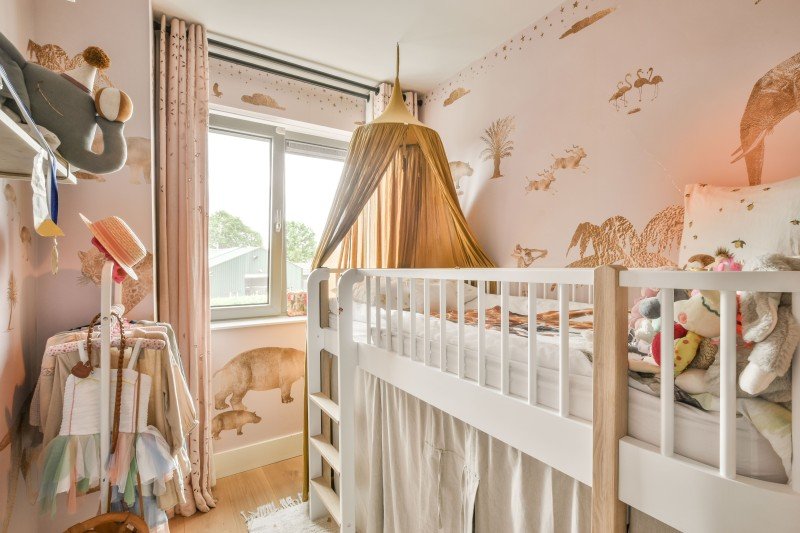The Comprehensive Guide to Bunk Beds House: Maximizing Space and Functionality
Bunk beds are becoming significantly popular in contemporary families, especially for those living in restricted space. Whether in a child's bedroom, a guest room, or even a holiday home, bunk beds provide an innovative option for making the most of space while likewise accommodating several sleepers. This short article dives into the numerous elements of bunk beds, their design options, advantages, and factors to consider for upkeep to help anybody considering a bunk bed purchase make a notified decision.
Understanding Bunk Beds
Bunk beds are a kind of bed that includes one bed stacked on top of another, generally protected by a ladder or built-in stairs. They are typically made from wood or metal, with designs ranging from standard to modern. Bunk beds are most commonly used in children's rooms, guest accommodations, and summer camps, however they can likewise be a great addition to studio apartments or homes.
Types of Bunk Beds
Understanding the ranges of bunk beds can help one choose the ideal style for one's needs. Here are the common types:
| Type | Description | Pros | Cons |
|---|---|---|---|
| Standard Bunk | Two beds stacked on top of each other | Space-saving, classic design | Minimal sleeping capacity for adults |
| Loft Bed | A bed raised with open space below for a workspace or play area | Offers additional usable space | Not perfect for more youthful children |
| Futon Bunk | A bed on top, frequently with a futon on the bottom | Versatile for sleeping and seating | Less stability compared to conventional bunks |
| L-Shaped Bunk | Two beds organized in an L-shape, frequently with storage choices | Unique style, can fit in corners | Takes up more space than standard bunk beds |
| Triple Bunk | 3 beds set up vertically or in an unique setup | Optimizes sleeping space | Greater risk of mishaps, more complex to make |
Advantages of Bunk Beds
Bunk beds provide numerous benefits, making them a practical furnishings option for various living areas. The advantages include:
- Space Efficiency: Perfect for small spaces, they enable for more flooring space, making it much easier to move around.
- Dual Functionality: Especially in the case of loft-style beds, the space below can be utilized for a study area, a play zone, or extra storage.
- Social Interaction: Bunk beds create a sense of sociability amongst siblings or roommates, promoting sharing and bonding.
- Cost-efficient Sleeping Solution: They offer a budget-friendly method to accommodate several visitors without the need to invest in extra different beds.
- Style Variety: With choices ranging from smooth modern-day styles to classic wood structures, there is a bunk bed design to fit any decoration.
Essential Considerations for Bunk Beds
While bunk beds offer numerous advantages, there are particular considerations to keep in mind to ensure security and durability:
- Weight Capacity: Always check the weight limitation of the bunk bed to avoid accidents. Many standard bunk beds have weight capabilities between 200-400 pounds.
- Product Quality: Opt for durable products such as strong wood or top-quality metal to guarantee stability and durability.
- Safety Features: Look for designs with guard rails on the leading bunk and large ladders. Ensure that the bed feet are steady and safe.
- Age Appropriateness: Young children must not oversleep the top bunk, as the danger of falling is substantially increased.
- Assembly: Some bunk beds can be complex to assemble. Guarantee that good guidelines are available, or consider expert assembly.
Maintenance of Bunk Beds
Correct maintenance of bunk beds is important for ensuring their comfort and security. Here are some tips for maintenance:
- Regular Inspections: Periodically examine the stability of the bed, ensuring all screws and components are tight and safe and secure.
- Cleaning: Dust the furniture frequently and clean up any spills instantly to maintain the stability and appearance of the beds.
- Mattress Care: Rotate mattresses occasionally to prevent wear and drooping. Think about hypoallergenic bed mattress protectors for included comfort and cleanliness.
- Readjust if Moved: If the bed is moved, readjust all parts to make sure continued safety and stability.
FAQs about Bunk Beds
Q1: Are bunk beds safe for children?A1: Yes, as long as safety standards are stuck to. Ensure the leading bunk has guardrails, and that children are old adequate and accountable sufficient to safely use the leading bunk. Q2: How much weight can a bunk beds house

bed support?A2: Most bunk beds support between 200 to 400 pounds per bed
, but this can differ by style. Always describe the manufacturer's requirements. Q3: Can adults sleep in bunk beds?A3: Yes, many modern-day bunk beds are
created to accommodate adults, particularly those with enhanced frames. Q4: Do bunk beds require special mattresses?A4: Not necessarily. Standard bed mattress can be used as long as they fit the measurements offered by the maker. However, options to keep the space uncluttered. Bunk beds offer an excellent solution for taking full advantage of space in a home while supplying a trendy and functional sleeping plan. Whether for a child's room, a guest space, or a trip house, they are a versatile option that can accommodate different requirements. By thinking about types, advantages, and correct upkeep, individuals can make informed choices, guaranteeing safety and longevity in their bunk bed investment. With mindful choice, bunk beds can enhance both comfort and aesthetic appeal in any room.
think about utilizing thinner mattresses for the leading bunk to ensure safety clearance. Q5: How can I take full advantage of space in a room with bunk beds?A5: Use the area beneath for storage or desks, and think about integrating vertical storage








